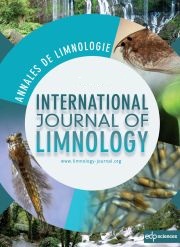Crossref Citations
This article has been cited by the following publications. This list is generated based on data provided by
Crossref.
García-Muñoz, E.
Guerrero, F.
and
Parra, G.
2009.
Effects of Copper Sulfate on Growth, Development, and Escape Behavior in Epidalea calamita Embryos and Larvae.
Archives of Environmental Contamination and Toxicology,
Vol. 56,
Issue. 3,
p.
557.
García-Muñoz, E.
Guerrero, F.
and
Parra, G.
2010.
Intraspecific and Interspecific Tolerance to Copper Sulphate in Five Iberian Amphibian Species at Two Developmental Stages.
Archives of Environmental Contamination and Toxicology,
Vol. 59,
Issue. 2,
p.
312.
Masotti, Véronique
De Jong, Laetitia
Moreau, Xavier
Rabier, Jacques
Laffont-Schwob, Isabelle
and
Thiéry, Alain
2011.
Larvicidal activity of extracts from Artemisia species against Culex pipiens L. mosquito: Comparing endemic versus ubiquist species for effectiveness
.
Comptes Rendus. Biologies,
Vol. 335,
Issue. 1,
p.
19.
Casas, J. Jesús
Sánchez-Oliver, Juan S.
Sanz, Ana
Furné, Miriam
Trenzado, Cristina
Juan, Melchor
Paracuellos, Mariano
Suárez, María D.
Fuentes, Francisca
Gallego, Irene
Gil, Carlos
and
Ramos-Miras, José J.
2011.
The paradox of the conservation of an endangered fish species in a Mediterranean region under agricultural intensification.
Biological Conservation,
Vol. 144,
Issue. 1,
p.
253.
Verma, Vibha
Yu, Qiming J.
and
Connell, Des W.
2012.
Evaluation of effects of exposure time on aquatic toxicity with zooplanktons using a reduced life expectancy model.
Chemosphere,
Vol. 89,
Issue. 9,
p.
1026.
Svetlichny, Leonid
Khanaychenko, Antonina
Hubareva, Elena
and
Aganesova, Larisa
2012.
Partitioning of respiratory energy and environmental tolerance in the copepods Calanipeda aquaedulcis and Arctodiaptomus salinus.
Estuarine, Coastal and Shelf Science,
Vol. 114,
Issue. ,
p.
199.
Svetlichny, L
Hubareva, E
and
Khanaychenko, A
2012.
Calanipeda aquaedulcis and Arctodiaptomus salinus are exceptionally euryhaline osmoconformers: evidence from mortality, oxygen consumption, and mass density patterns.
Marine Ecology Progress Series,
Vol. 470,
Issue. ,
p.
15.
Jiménez‐Melero, Raquel
Ramírez, José M.
and
Guerrero, Francisco
2013.
Seasonal variation in the population growth rate of a dominant zooplankter: what determines its population dynamics?.
Freshwater Biology,
Vol. 58,
Issue. 6,
p.
1221.
Martínez-Fernández, Julia
Esteve-Selma, Miguel-Angel
Martínez-Paz, Jose-Miguel
Carreño, María-Francisca
Martínez-López, Javier
Robledano, Francisco
and
Farinós, Pablo
2014.
Ecological Modelling and Engineering of Lakes and Wetlands.
Vol. 26,
Issue. ,
p.
275.
Del Arco, Ana Isabel
Parra, Gema
Rico, Andreu
and
Van den Brink, Paul J.
2015.
Effects of intra- and interspecific competition on the sensitivity of aquatic macroinvertebrates to carbendazim.
Ecotoxicology and Environmental Safety,
Vol. 120,
Issue. ,
p.
27.
El-Bana, Magdy I.
2015.
Gravel pads of powerline towers as human-made habitats for ruderal vegetation in some Mediterranean wetlands of Egypt: Implications for management.
Egyptian Journal of Aquatic Research,
Vol. 41,
Issue. 1,
p.
83.
Boix, Dani
Kneitel, Jamie
Robson, Belinda J.
Duchet, Claire
Zúñiga, Luís
Day, Jennifer
Gascón, Stéphanie
Sala, Jordi
Quintana, Xavier D.
and
Blaustein, Leon
2016.
Invertebrates in Freshwater Wetlands.
p.
141.
Parra, Gema
Galotti, Andréa
Jiménez-Melero, Raquel
Guerrero, Francisco
Sánchez-Moyano, Emilio
Jiménez-Gómez, Francisco
and
Conradi, Mercedes
2016.
Effects of experimental long-term CO2 exposure on Daphnia magna (Straus 1820): From physiological effects to ecological consequences.
Chemosphere,
Vol. 156,
Issue. ,
p.
272.
Gilbert, Juan Diego
de Vicente, Inmaculada
Ortega, Fernando
García-Muñoz, Enrique
Jiménez-Melero, Raquel
Parra, Gema
and
Guerrero, Francisco
2017.
Linking watershed land uses and crustacean assemblages in Mediterranean wetlands.
Hydrobiologia,
Vol. 799,
Issue. 1,
p.
181.
del Arco, Ana
Guerrero, Francisco
Jiménez-Gómez, Francisco
and
Parra, Gema
2019.
Plankton community responses to environmentally-relevant agrochemical mixtures.
Annales de Limnologie - International Journal of Limnology,
Vol. 55,
Issue. ,
p.
5.
García-Muñoz, Enrique
Guerrero, Francisco
Arechaga, Garbiñe
and
Parra, Gema
2019.
Does wetland watershed land use influence amphibian larval development? A relevant effect of agriculture on biota.
Journal of Oceanology and Limnology,
Vol. 37,
Issue. 1,
p.
160.
de Vicente, Inmaculada
2021.
Biogeochemistry of Mediterranean Wetlands: A Review about the Effects of Water-Level Fluctuations on Phosphorus Cycling and Greenhouse Gas Emissions.
Water,
Vol. 13,
Issue. 11,
p.
1510.
Muniz, Marta Silva
Halbach, Katharina
Alves Araruna, Igor Cauê
Martins, Rafael Xavier
Seiwert, Bettina
Lechtenfeld, Oliver
Reemtsma, Thorsten
and
Farias, Davi
2021.
Moxidectin toxicity to zebrafish embryos: Bioaccumulation and biomarker responses.
Environmental Pollution,
Vol. 283,
Issue. ,
p.
117096.
Enochs, Brendan
Meindl, George
Shidemantle, Grascen
Wuerthner, Vanessa
Akerele, David
Bartholomew, Allison
Bulgrien, Benjamin
Davis, Abigail
Hoyt, Katelynn
Kung, Lena
Molina, Maria
Miller, Elias
Winship, Ally
Zhang, Yiqun
Graney, Joseph
Collins, David
and
Hua, Jessica
2023.
Short and long-term phytoremediation capacity of aquatic plants in Cu-polluted environments.
Heliyon,
Vol. 9,
Issue. 1,
p.
e12805.
López-Valcárcel, María Eugenia
del Arco, Ana
and
Parra, Gema
2023.
Sublethal exposure to agrochemicals impairs zooplankton ability to face future global change challenges.
Science of The Total Environment,
Vol. 873,
Issue. ,
p.
162020.




